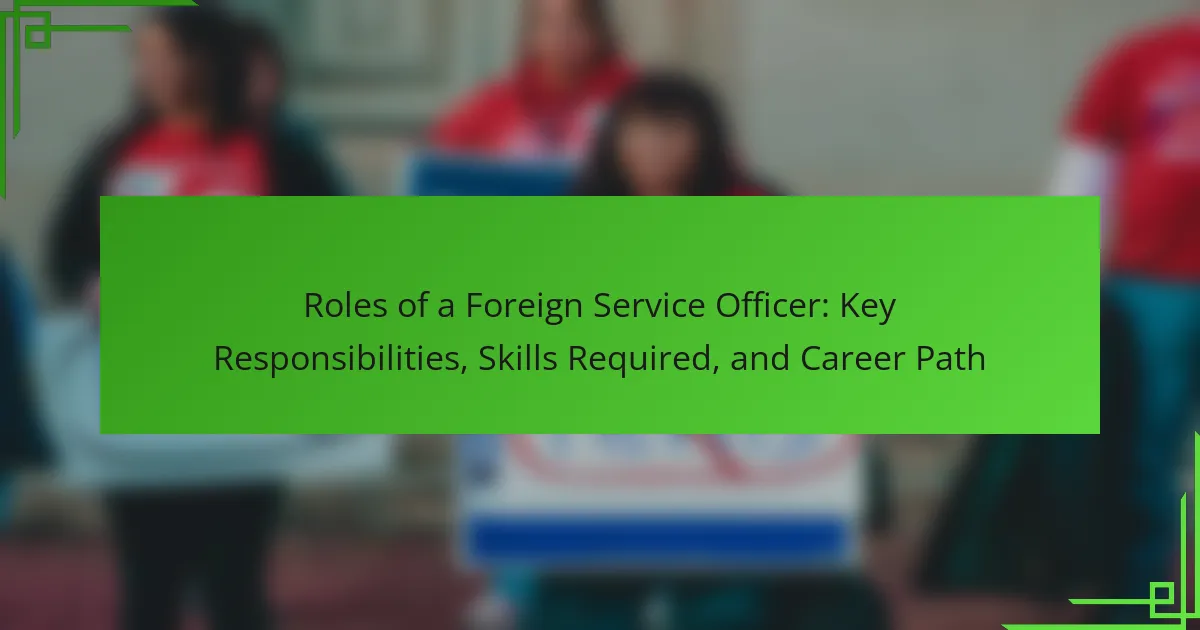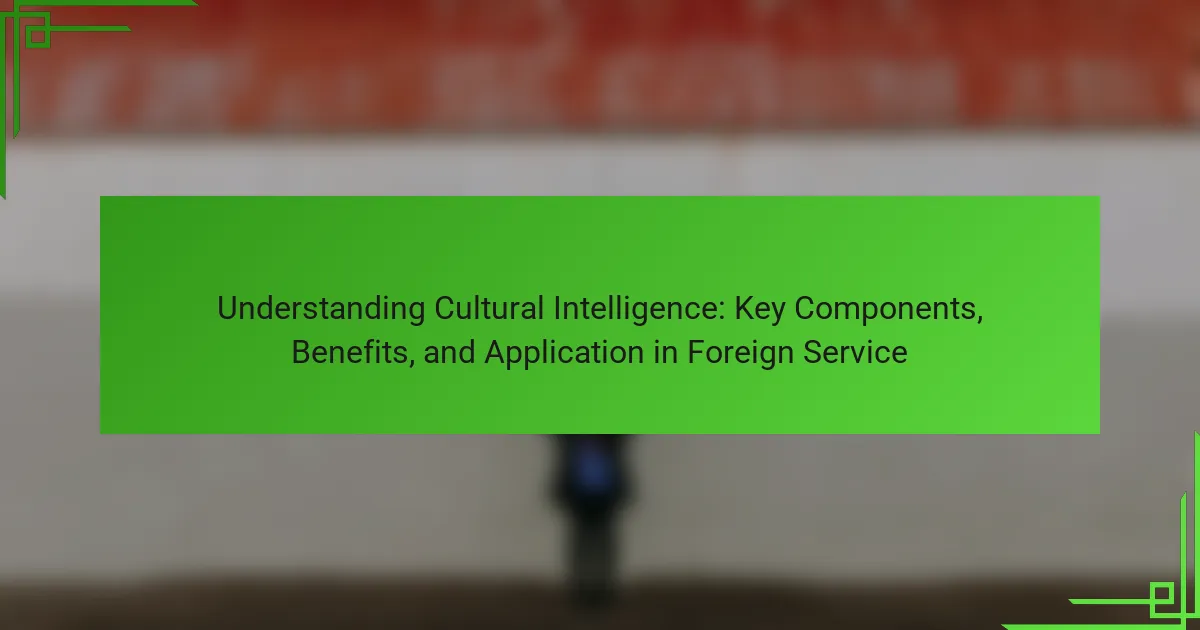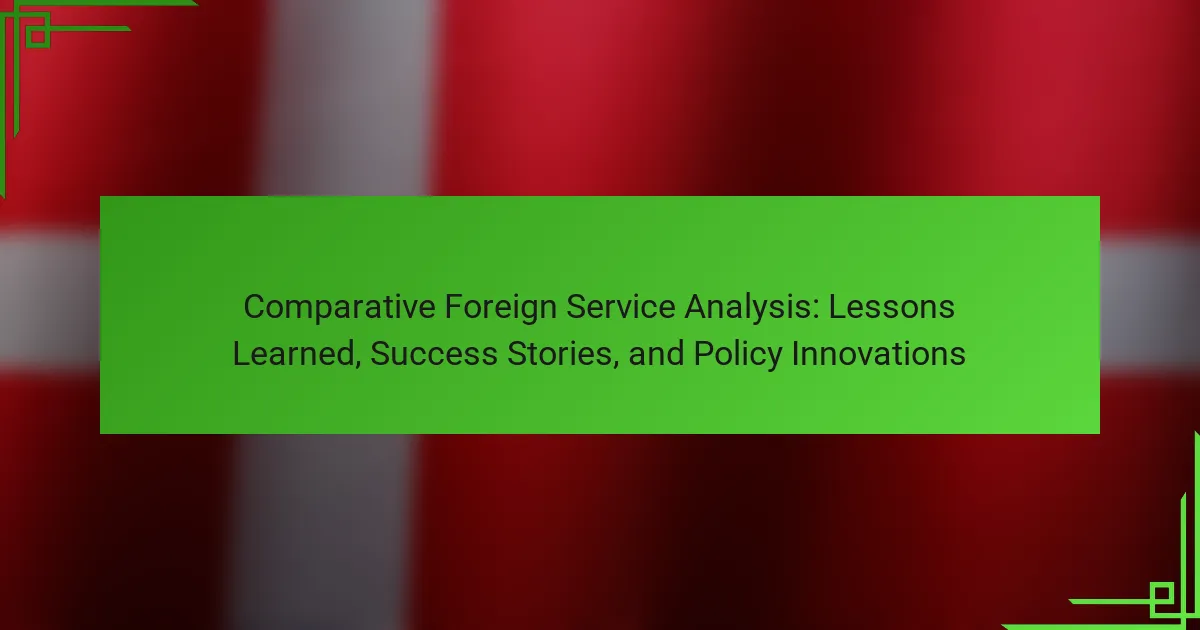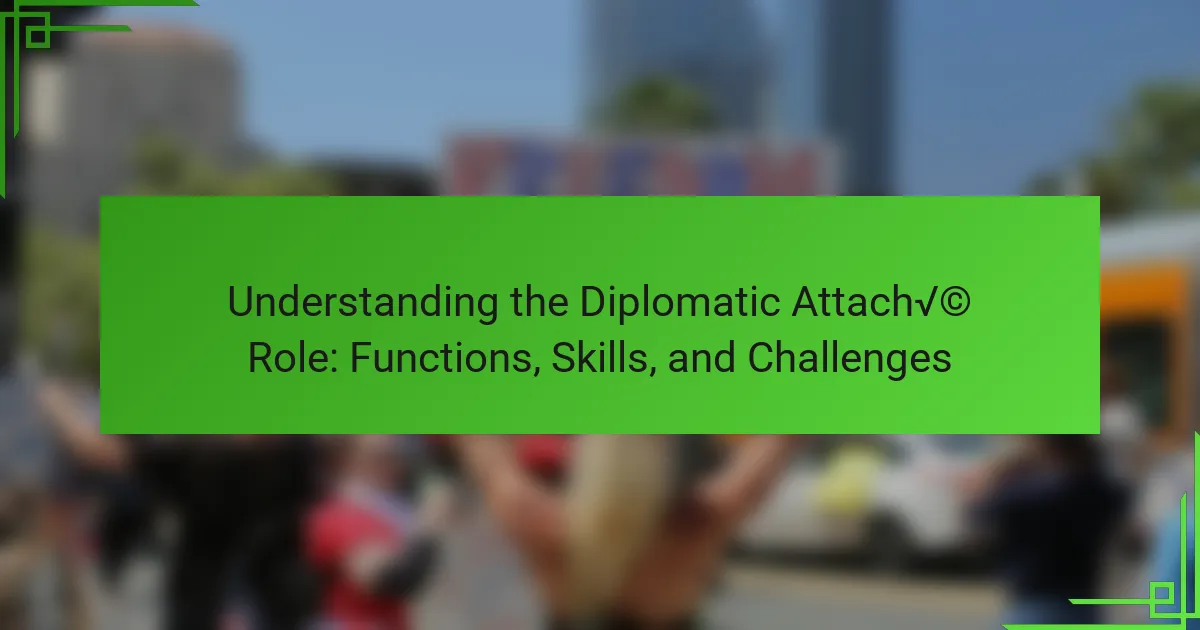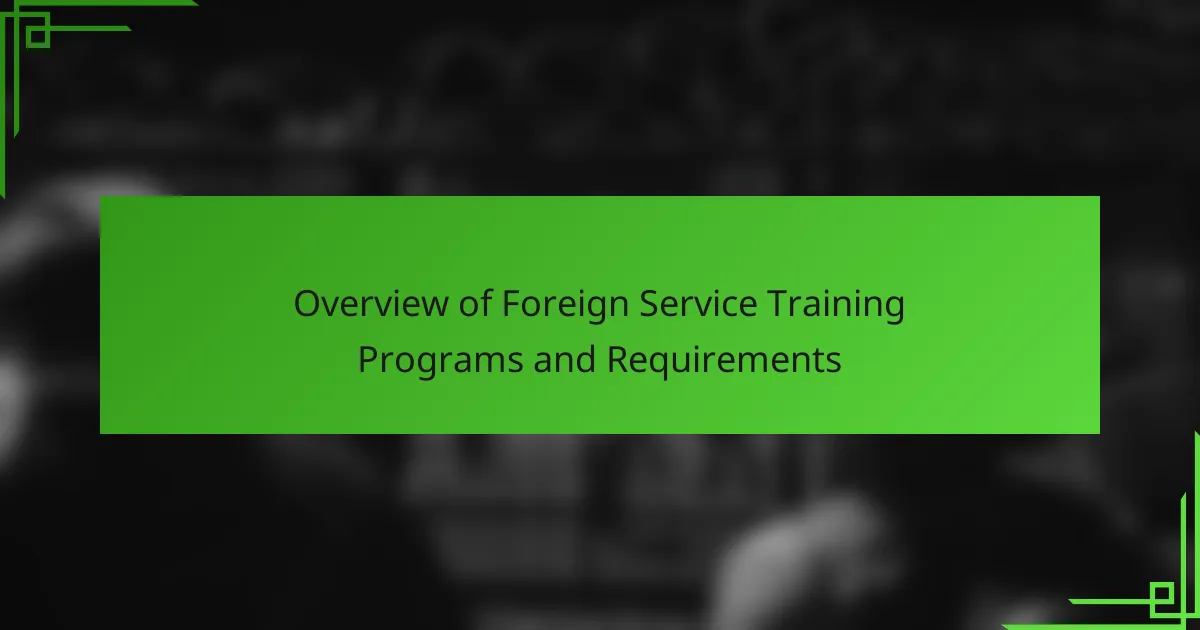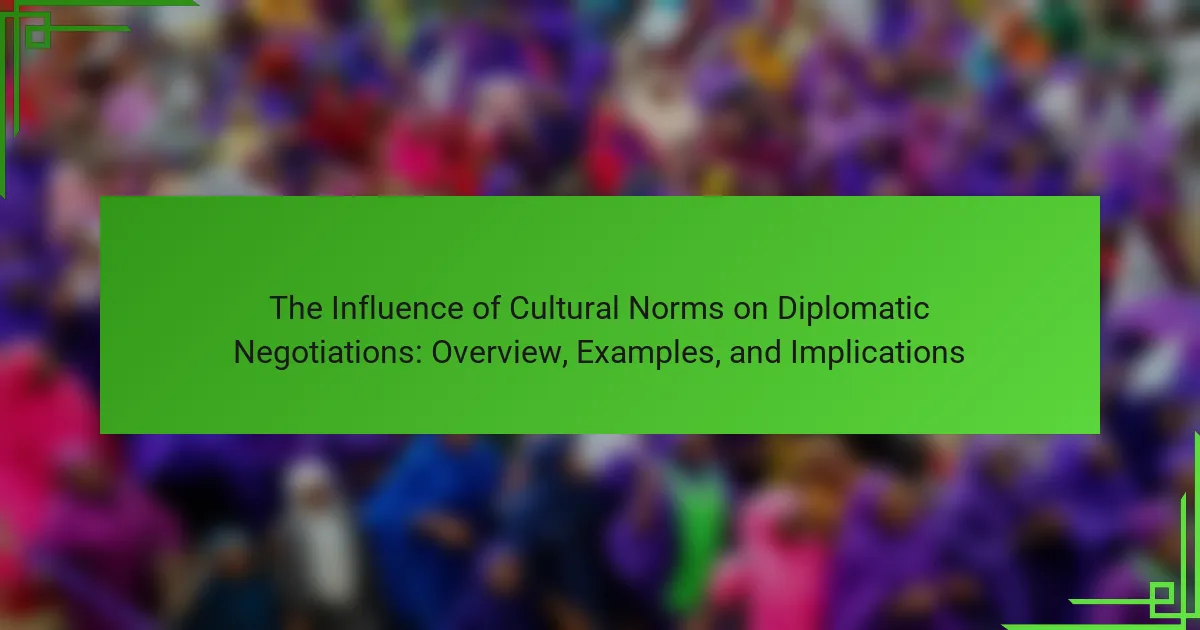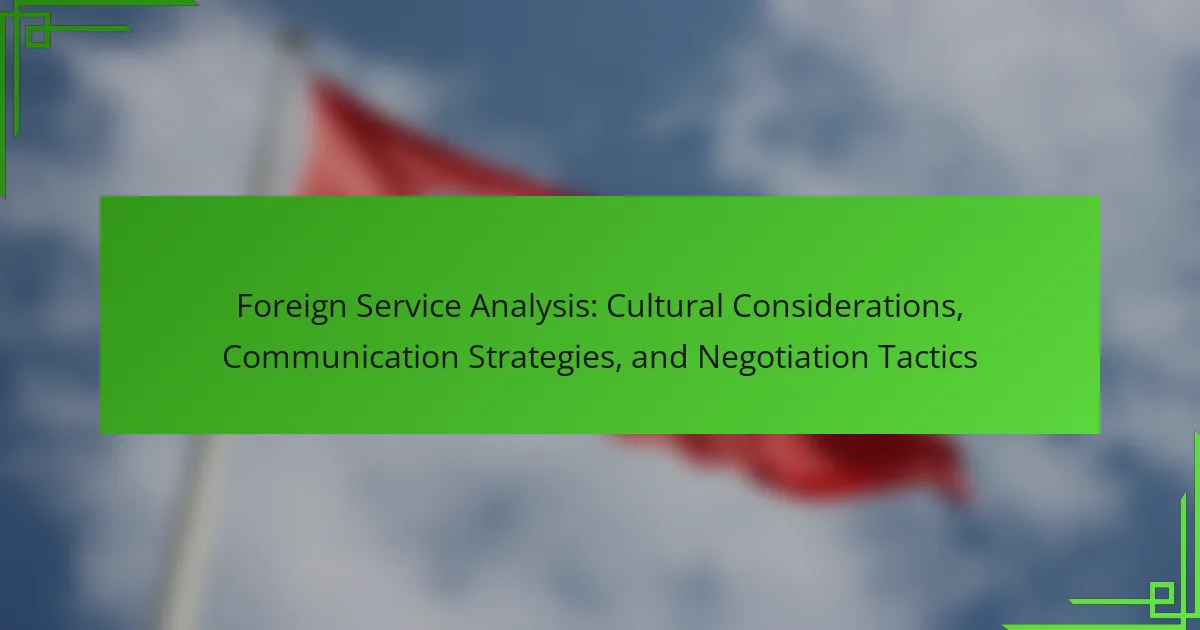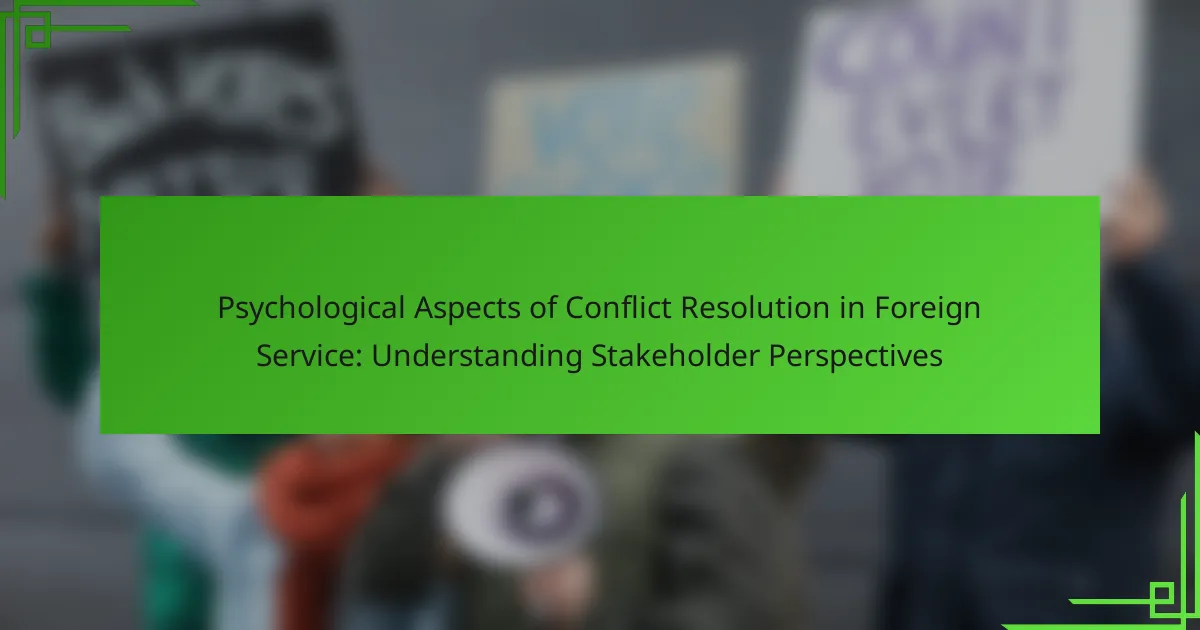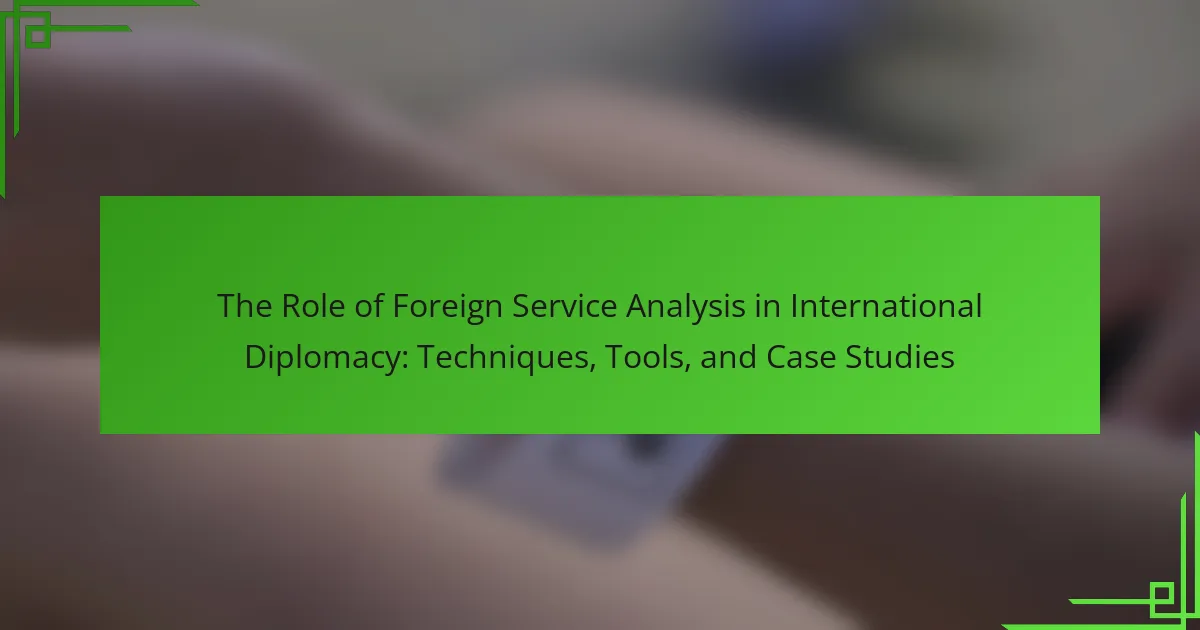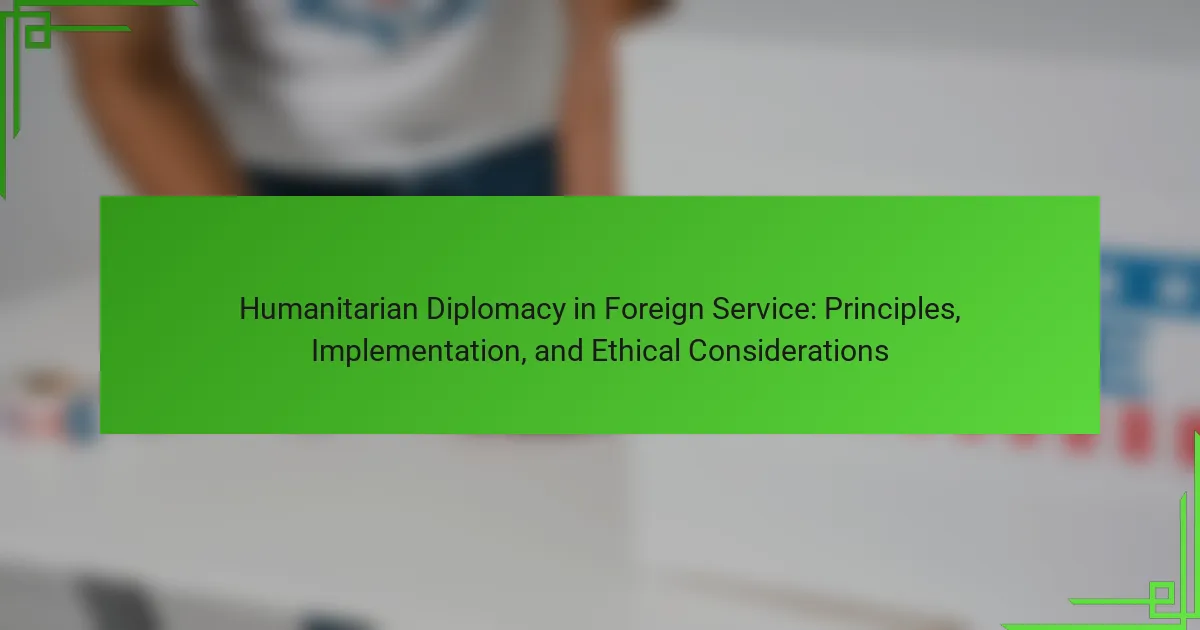A Foreign Service Officer (FSO) is a diplomat who represents their country in international settings, working primarily in embassies and consulates. FSOs engage in various activities, including negotiating treaties, assisting citizens abroad, and gathering political and economic intelligence, all while promoting cultural exchange. To become an FSO, candidates must complete specific educational and testing requirements,…
Author: Miranda Ashcroft
Understanding Cultural Intelligence: Key Components, Benefits, and Application in Foreign Service
Cultural intelligence is the capability to relate and work effectively across diverse cultures, encompassing cognitive, emotional, and behavioral components. The cognitive aspect involves knowledge of cultural norms and values, while the emotional component focuses on empathy and emotional regulation in cross-cultural settings. The behavioral element pertains to adapting actions and communication styles to fit various…
Comparative Foreign Service Analysis: Lessons Learned, Success Stories, and Policy Innovations
Comparative Foreign Service Analysis is a method used to evaluate and compare diplomatic practices across various countries, focusing on the effectiveness and efficiency of foreign service operations. This analysis examines policies, strategies, and outcomes in diverse international contexts to identify best practices and lessons learned. Key insights from this analysis reveal the importance of context,…
Understanding the Diplomatic Attaché Role: Functions, Skills, and Challenges
A Diplomatic Attaché is a government representative involved in foreign relations, primarily focusing on diplomatic communications and negotiations. Their responsibilities include analyzing political, economic, and social developments in the host country, assisting in treaty negotiations, and supporting the ambassador’s mission. Key skills required for this role include effective communication, cultural sensitivity, negotiation, analytical thinking, adaptability,…
Overview of Foreign Service Training Programs and Requirements
Foreign Service Training Programs are designed to prepare individuals for careers in diplomacy and international relations. These programs encompass coursework in foreign policy, international law, and cultural awareness, along with practical exercises like simulations and role-playing. Candidates must meet specific educational and experiential criteria, including a bachelor’s degree, passing the Foreign Service Officer Test (FSOT),…
The Influence of Cultural Norms on Diplomatic Negotiations: Overview, Examples, and Implications
Cultural norms are the shared expectations and rules that guide behavior within a society, significantly impacting diplomatic negotiations. This article explores how these norms influence communication styles, decision-making processes, and negotiation strategies among diplomats. Key examples illustrate the differences between high-context and low-context cultures, the role of hierarchy, and the importance of relationship-building in negotiations….
Foreign Service Analysis: Cultural Considerations, Communication Strategies, and Negotiation Tactics
Foreign Service Analysis is the systematic examination of diplomatic practices and international relations, emphasizing cultural dynamics, communication strategies, and negotiation tactics. This analysis aids diplomats in managing complex interactions between nations by considering political contexts, economic factors, and social norms. The article will explore how these elements enhance the effectiveness of diplomatic missions, inform policy…
Psychological Aspects of Conflict Resolution in Foreign Service: Understanding Stakeholder Perspectives
The article explores the psychological aspects of conflict resolution in foreign service, focusing on the roles of emotions, perceptions, and cultural differences among stakeholders. It highlights how emotional intelligence, active listening, and empathy contribute to effective negotiation and mediation strategies. The discussion emphasizes the importance of clear communication and cultural awareness in preventing misunderstandings and…
The Role of Foreign Service Analysis in International Diplomacy: Techniques, Tools, and Case Studies
Foreign Service Analysis is a crucial component of international diplomacy, focusing on the evaluation of political, economic, and social factors that impact foreign relations. This article examines the techniques and tools utilized in Foreign Service Analysis, including qualitative and quantitative analysis, scenario planning, and stakeholder analysis, which inform diplomatic strategies and decision-making. It highlights notable…
Humanitarian Diplomacy in Foreign Service: Principles, Implementation, and Ethical Considerations
Humanitarian diplomacy is the practice of utilizing diplomatic tools to address humanitarian issues, focusing on the protection of vulnerable populations during crises. This approach involves collaboration with governments, international organizations, and non-governmental organizations to facilitate access to aid and support for those impacted by conflict or disaster. Key aspects of humanitarian diplomacy include advocacy for…
